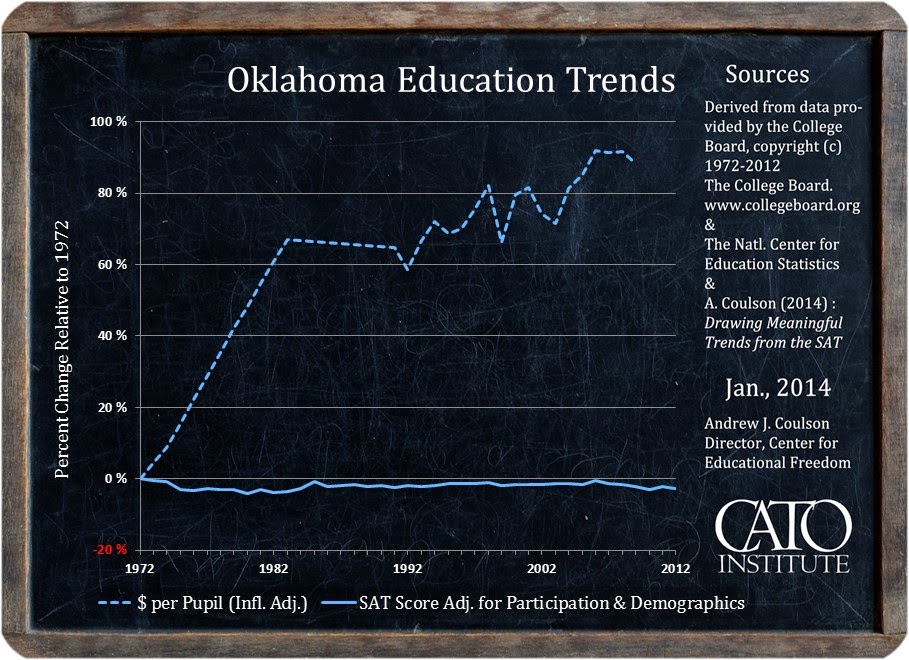Thursday, September 18, 2014
Another year, another wake-up call
In 2007, the U.S. Chamber of Commerce published a report, “Leaders & Laggards,” which gave Oklahoma’s public school system an “F.” The report said “student performance in Oklahoma is very poor — the state ranks among the lowest in the nation.” This sobering news prompted Oklahoma State University regent Burns Hargis to remark, “If this report is not a wake-up call, I don’t know what is.”
Well, the 2014 edition of “Leaders & Laggards” was released last week, and once again Oklahoma earned an “F” for academic achievement. “Student performance in Oklahoma is very weak,” the report says.
“I am unfortunately not surprised by Oklahoma’s poor showing in this study,” said Jennifer Monies, executive director of the Oklahoma Educated Workforce Initiative. “I hope that our failing grade in academic achievement will serve as a wake-up call to all Oklahomans that we must do something now to improve Oklahoma’s educational outcomes.” I agree, though one also has to appreciate state Superintendent Janet Barresi’s observation: “It would be tempting to label this a ‘wake-up call,’ except that alarm bells have been going off for many years.”
For his part, Mike Neal, president and CEO of the Tulsa Regional Chamber, called the results “disappointing,” and renewed the call for more government spending on Oklahoma’s failed monopoly system. (If that surprises you, it shouldn’t.) But increased spending would be an unwise use of scarce resources, given that there is essentially no link between state education spending and student performance:
I have been issuing my own wake-up call for 20 years now, and will take this opportunity to do so again. Policies which give parents more educational options have the added benefit of improving public schools. Dr. Greg Forster reviewed the literature and found that 23 empirical studies “have examined school choice’s impact on academic outcomes in public schools. Of these, 22 find that choice improves public schools and one finds no visible impact. No empirical study has found that choice harms public schools.”
To repeat: school choice improves public schools. Rather than once again hitting the “more government spending” snooze button, policymakers should respond to this latest wake-up call with robust school-choice policies.
[Cross-posted at OCPA]
Subscribe to:
Post Comments (Atom)


No comments:
Post a Comment